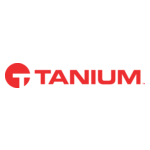Transforming the Digital Landscape: Key Insights from Recent Technology Events
Author: Tech Analysis Team

As the world becomes increasingly interconnected through technology, several recent events have provided insights into the evolving digital landscape. Notably, Tanium's Converge World Tour recently made its stop in London, where industry leaders gathered to discuss the importance of trust and resilience in addressing today's security threats. CEO Dan Streetman emphasized the necessity of these factors in a climate of rising cyber threats, marking the event as a pivotal platform for sharing best practices in endpoint management.
In addition to Tanium's focus on security, the UK public sector's challenges and aspirations were highlighted in a recent report by 8x8. With budget constraints limiting technological advancements, public sector organizations are seeking unified and secure AI solutions for improving customer experience (CX). This sentiment reflects broader trends where legacy technology systems impede progress, prompting calls for modernization to meet the increasing demands for efficiency and innovation.

Tanium's Converge World Tour in London, where industry leaders convened to discuss cybersecurity.
Moreover, stress-related challenges in the transportation sector cannot be overlooked. A recent survey by Geotab revealed that a staggering 91% of European commercial drivers reported that work-related stress adversely affects their driving performance. This statistic is concerning, particularly in light of the fact that 95% observed an increase in accident risks over the past five years. The findings raise important questions about the role of workplace mental health in ensuring road safety.
Addressing issues of workplace stress is imperative, particularly as organizations look for ways to enhance employee well-being and operational efficiency. The transportation sector, heavily reliant on skilled drivers, must create supportive environments to mitigate stressors that could jeopardize job performance and safety.

Survey results highlight the impact of work-related stress on driving among European commercial drivers.
On the technological front, companies are navigating new terrain as seen in SoundCloud's recent policy changes regarding AI. Following user concerns over how their audio content might be used for AI training, SoundCloud modified its terms to assure users that their inputs would not be misappropriated. This move underscores the delicate balance technology firms must maintain between innovation and user trust, particularly in the AI space.
The expansion of AI into various sectors continues to spark debate, notably in advertising. YouTube's recent decision to employ AI for ad placements aims to increase their visibility, even if it leads to less user-friendly experiences. As platforms adapt their marketing strategies, users are left to navigate a landscape where tailored ads could come at the cost of convenience.

YouTube's new AI-driven ad placements challenge traditional user experiences.
Finally, the growth of the satellite internet market, projected to reach USD 18.59 billion by 2030, highlights the demand for connectivity in underserved regions. As advancements in communication technology proliferate, supported by favorable government policies in developing nations, the market is primed for substantial growth. The integration of satellite internet systems could play a crucial role in bridging the digital divide, fostering inclusivity in access to digital resources.
In conclusion, the recent events and reports underscore a complex interplay between security, mental well-being, and technological advancements. As sectors grapple with these changes, fostering trust and adapting to user needs will be critical in shaping a sustainable digital future.